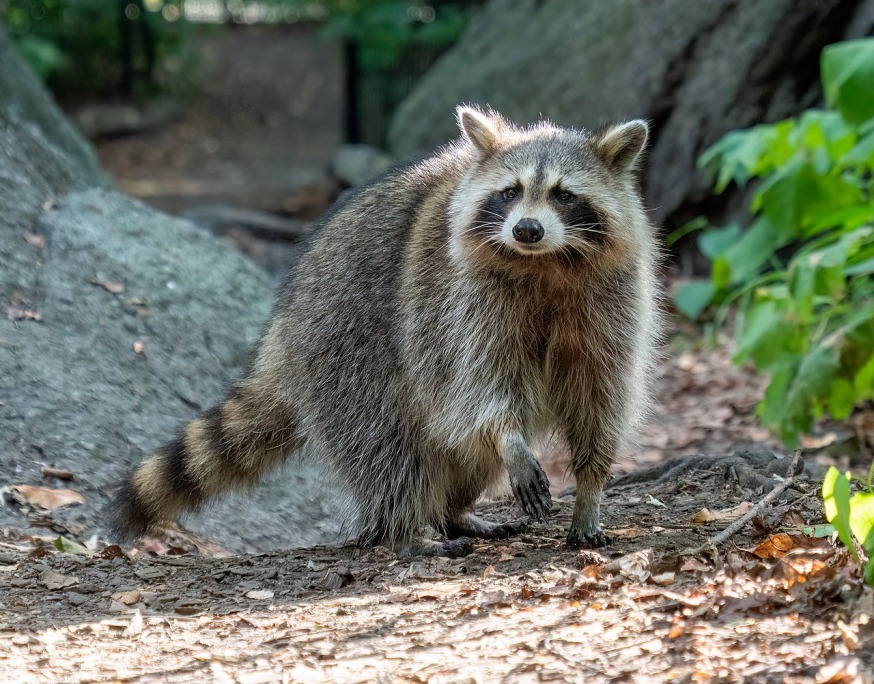
The city started an initiative Monday to vaccinate raccoons against rabies (Photo: Rhodo Dendrites CC BY-SA 4.0)
Sept. 13, 2022 By Czarinna Andres
The city has launched an initiative to vaccinate raccoons against rabies.
The Dept. of Health, the Parks Dept. and wildlife biologists with the U.S. Department of Agriculture began distributing individual baits Monday containing an oral rabies vaccine in wooded areas in Brooklyn, Queens, Manhattan and Staten Island. The campaign will last until mid-October.
The initiative comes in response to 18 animals across the city having been tested positive for rabies this year. Of the 18, seven have been raccoons found in Queens.

The locations where raccoons were found in Queens that tested positive for rabies
The city is advising residents to avoid racoons given the rabies danger. In New York City, rabies is mostly found in raccoons.
“New Yorkers should be advised — if you see a raccoon, give them space, and never approach or try to feed them,” said Sarah Aucoin, Chief of Education & Wildlife for NYC Parks.
The baits are being distributed with the goal of eliminating the virus. The baits are small and brown, and fish scented, according to the Dept. of Health. They resemble a ketchup packet, which conceals a small amount of pink, liquid vaccine. Raccoons are attracted to the odor, and when raccoons chew the bait, they can become immunized, protecting them against rabies infection.
The bait itself does not harm people, officials say, but in extremely rare instances, exposure to the liquid may cause a rash.
In the unlikely event someone comes in contact with the liquid, they are advised to wash their hands with warm, soapy water, talk to their doctor, and notify the NYC Poison Control Center at 1-800-222-1222.
The bait is not harmful to pets and cannot cause rabies, but it can cause vomiting if several baits are consumed, officials say.
Rabies is a fatal but preventable viral disease. It can spread to people and pets if they are bitten by a rabid animal. The disease is rare—with the last human case of rabies in New York City reported in 1947, according to the Health Dept. website. No dogs have tested positive for over 60 years.
The rabies virus infects the central nervous system. If a person or pet does not receive the appropriate medical care after a potential rabies exposure, the virus can cause disease in the brain, ultimately resulting in death. Rabies can be prevented by vaccinating pets, staying away from wildlife, and seeking medical care after potential exposures before symptoms start.
For more information about rabies in New York City, visit www.nyc.gov/health/rabies.
